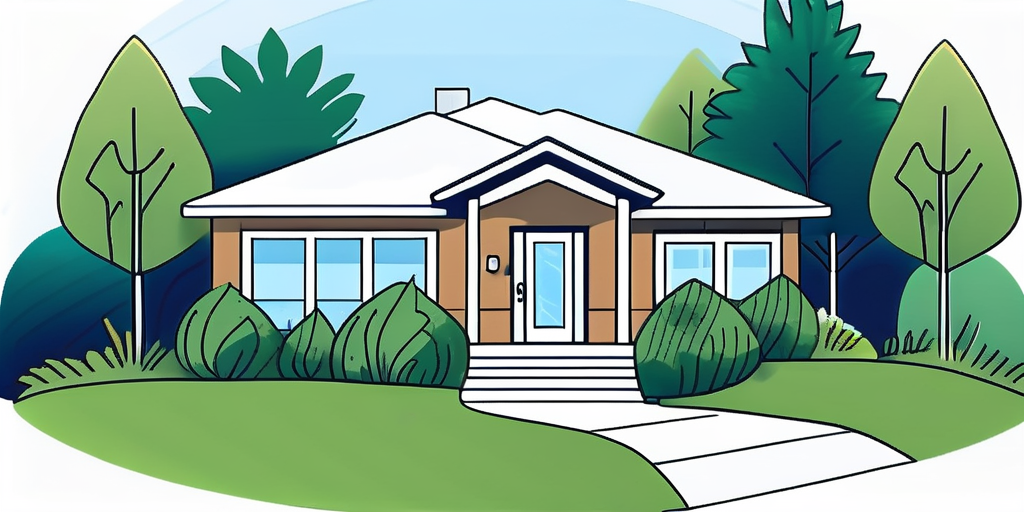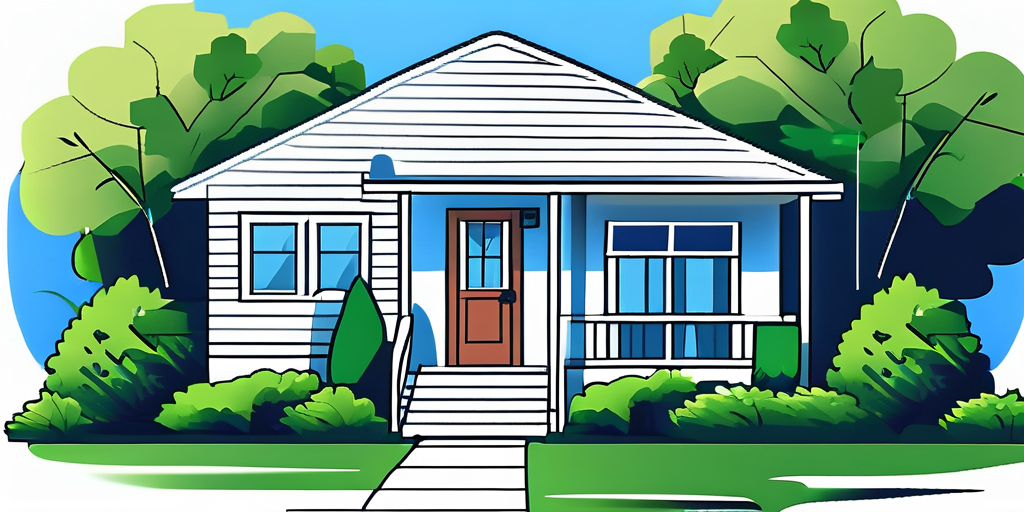Tips for Selling a Home Privately: A Comprehensive Guide

Selling a home is one of the most significant financial decisions many individuals will make. For those considering a private sale instead of using a real estate agent, it's essential to understand the intricacies involved. This comprehensive guide will walk you through the process, highlighting key strategies and considerations that can lead to a successful private home sale.
Understanding the Basics of Private Home Sales
Private home sales, often referred to as 'For Sale by Owner' (FSBO), allow homeowners to market and sell their properties independently. This approach can cut costs related to commission fees, but it also requires a solid understanding of the home selling process.

Private sales have become increasingly popular due to the availability of online platforms that enable homeowners to list their properties without involving a real estate agent. However, potential sellers must be prepared to handle everything from marketing to negotiations, as well as legal obligations.
The Pros and Cons of Selling Your Home Privately
Every selling method has its advantages and disadvantages. The foremost benefit of selling privately is the potential to save on agent fees, which typically range from 5% to 6% of the home’s sale price. For example, if you're selling a home for $300,000, that's a savings of up to $18,000.
On the downside, the responsibility of managing the entire sales process falls solely on the seller. This includes creating listings, scheduling viewings, and negotiating with potential buyers—all of which can be incredibly time-consuming. It's crucial to weigh these factors carefully before deciding to sell privately.
Legal Considerations in Private Home Sales
When selling a home privately, one of the most critical components is understanding the legal framework governing real estate transactions in your area. Proper documentation is essential to protect both the seller and buyer. This includes disclosures regarding the home's condition, title deed, and other relevant legal documents.
Additionally, some regions may have specific requirements for private sales that must be adhered to. For instance, in certain states, sellers are required to provide a property disclosure statement outlining any known issues, such as plumbing problems or past pests. Being informed and prepared to manage these legal aspects is crucial to avoid potential pitfalls.
Preparing Your Home for Sale
Before listing your home, it's essential to prepare it properly. First impressions matter, and making your home appealing can significantly influence potential buyers. This preparation is often what separates a successful sale from a stagnant listing.

Consider how your home presents itself visually both inside and out. A clean and well-maintained property will reflect positively on you as a seller and can lead to quicker offers.
Home Improvement Tips for a Quick Sale
Minor improvements can enhance your home's aesthetics and functionality without breaking the bank. For example, repainting walls in neutral colors can make spaces feel larger and more inviting. Additionally, small updates like replacing outdated fixtures and enhancing curb appeal through landscaping can yield substantial benefits.
Moreover, consider investing in a pre-inspection. This proactive approach identifies issues prior to listing, allowing you to address them and reassure potential buyers that your home is in good condition, which can speed up the sale process.
Staging Your Home to Attract Buyers
Staging is an essential step when selling privately, as it allows potential buyers to envision themselves in the space. According to the National Association of Realtors, homes that are staged sell 73% faster than non-staged homes.
Utilizing professional staging services or even DIY options can make a huge difference. Begin by decluttering rooms and removing personal items, such as family photographs. This creates a neutral environment where buyers can imagine their own lives unfolding.
Setting the Right Price
Pricing your home correctly is one of the most critical elements of the selling process. It's essential to set a price that reflects its market value while remaining attractive to potential buyers.

Researching similar properties in your neighborhood can provide valuable insight into current market trends. Use platforms like Zillow or Realtor.com to compare your home with others that have recently sold or are currently for sale.
Market Research for Pricing Your Home
To determine a competitive price, consider working with a real estate appraiser. Their expertise can help you assess your home's value accurately. For instance, if homes in your area typically sell for about $400,000 but have recently experienced price drops, you may want to list slightly lower to attract interest.
Another approach is to host an open house event, which can provide immediate feedback on how potential buyers perceive your pricing. Adjusting your price based on this feedback, especially in a sluggish market, can significantly improve your chances of a successful sale.
Negotiating the Best Deal
The negotiation stage can be both exhilarating and stressful. Effective negotiators will advocate for their interests while remaining flexible to buyer requests. A common tactic is to have a clear bottom line before negotiations begin.
If a buyer presents an offer below your listed price, consider the overall value of their offer—terms like closing flexibility or cash offers can be worth more than just the sale price alone. Assessing these aspects will assist in making informed decisions during negotiations.
Marketing Your Home Effectively
Getting the word out about your home is essential for attracting interested buyers. In today’s digital age, utilizing online platforms is crucial, but traditional methods still hold significant value.
A strong marketing strategy combines multiple approaches to maximize exposure and interest in your property.
Online Advertising Strategies
Social media platforms like Facebook and Instagram have become vital in home advertising. Creating engaging posts with captivating photos, videos, and virtual tours can attract potential buyers from a wider audience. Consider using targeted ads that focus on demographics likely to purchase homes in your area.
Additionally, listing your property on dedicated real estate sites can ensure your home reaches motivated buyers actively searching for new properties.
Traditional Marketing Techniques
Don’t underestimate the power of traditional marketing methods. “For Sale” signs placed prominently outside homes can attract local buyers driving by. Distributing flyers in the neighborhood or sending postcards can also generate interest.
Word of mouth remains a powerful marketing tool. Inform your friends, family, and community about your sale. Sometimes, the perfect buyer is just a conversation away.
Handling Viewings and Open Houses
Conducting viewings and open houses requires careful planning. It's your opportunity to showcase the home and engage directly with potential buyers.
Scheduling viewings at convenient times for interested parties can significantly enhance your chances of a sale. Weekends are often prime times for house hunting. Furthermore, keeping your home clean and inviting during showings will leave a lasting impression.
Scheduling and Managing Viewings
Develop a calendar for viewings, making it easier to coordinate with potential buyers. Utilize online calendar tools to streamline the process and confirm appointments. Always try to be flexible with timings to accommodate various schedules.
Creating a welcoming atmosphere during viewings can include a fresh bouquet of flowers or some gentle background music, allowing visitors to envision themselves living in your space.
Conducting Successful Open Houses
Open houses allow multiple prospective buyers to experience the property simultaneously, which can lead to competitive offers. Ensure your home is in pristine condition before the event. You may also want to provide informational packets that include important details about the property and neighborhood.
Having refreshments available can also make visitors feel more at ease, encouraging them to spend more time exploring your home. This relaxed environment often leads to fruitful discussions about the property.
In summary, selling a home privately can offer significant advantages, provided you approach the process with careful preparation and strategic planning. By understanding the basics, adequately preparing your property, pricing it correctly, and utilizing effective marketing strategies, you can increase your chances of a successful sale. Whether you’re a first-time seller or have experience, these tips will guide you towards a rewarding private home sale.
Maximize Your Private Home Sale with SmartSellersMatch.com
Ready to take the next step in your private home sale journey? Discover your property's potential with SmartSellersMatch.com. Our platform empowers you to sell without a realtor, providing essential information and documents to ensure a smooth and successful transaction. Get a head start with an instant FSBO Market Score, which uses extensive data to evaluate your starting point and offers insights on enhancing your home's appeal. This means not only a smoother sale process but also the possibility of a higher final sale price. Get your instant FSBO Market Score now and move closer to a lucrative private home sale.





